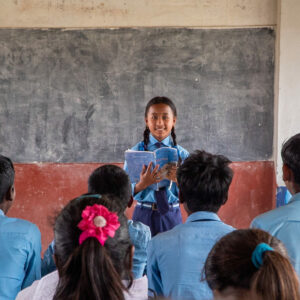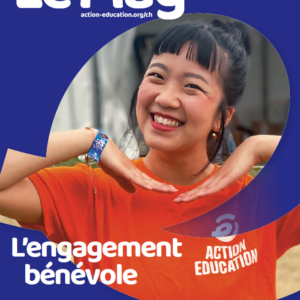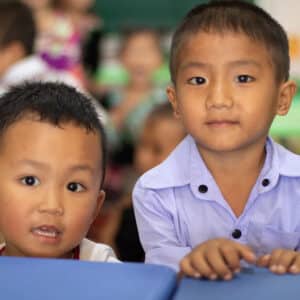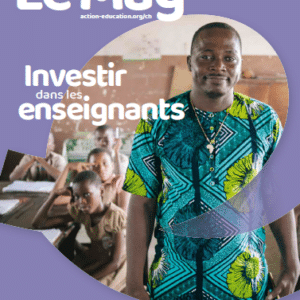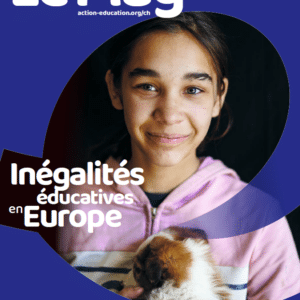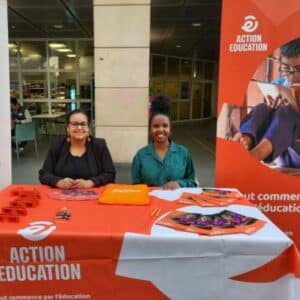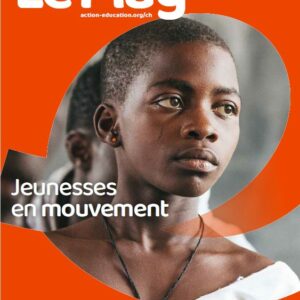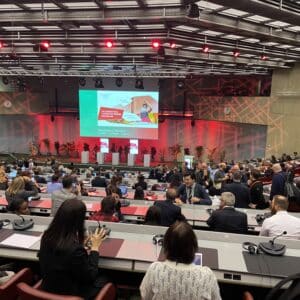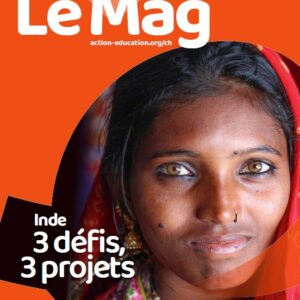Women were among the main victims of the COVID-19, bearing the brunt of its economic and social consequences. Despite promises, they are still far from being at the heart of the recovery announced by the States for a post-Covid world, denounces Aide et Action. Yet, it is urgent.
One year ago, on the symbolic date of International Women's Rights Day, we were already warning about the threats posed by COVID-19 and its economic and social consequences on women's rights. And we called for a general awakening of consciousness to avoid an unprecedented setback in the history of girls' and women's rights.
COVID-19: an unprecedented setback for women's rights
Indeed, for the vast majority of women, especially the 740 million working in the informal economy, VIDC-19 meant loss of jobs and income. More than 47 million women were suddenly forced to live on less than US$1.90 a day, bringing the number of women living in extreme poverty worldwide to 435 million. In addition to the social restrictions that have deprived them of any access to care, family planning, psychological or administrative support, there has been a dramatic increase in violence against them in their own homes, in every country in the world without exception. The youngest have not been spared, with an increase of more than 13 million early marriages expected between 2020 and 2030. In terms of education, young girls have been among the first to be excluded: 767,000 were deprived of school at the worst moment of the crisis, and few of them, due to poor access to digital tools, have had access to any kind of distance learning, especially as barely 6 out of 10 countries have put in place educational alternatives for the most vulnerable populations. It is now estimated that between 11 and 20 million girls may never return to school as a result of increasing poverty.
Socio-economic responses of gender-blind states
In the face of such a dramatic situation, voices have been raised to build a more just and sustainable post-war world and to ensure that girls and women are included in the economic and social recovery of the world. Unfortunately, " the majority of socio-economic responses adopted by states under COVID-19 are gender-blind and rarely address the specific needs of women "The High Commissioner for Human Rights, Mrs. Michelle Bachelet, emphasised at a meeting of the Human Rights Council in July 2021. More than 24 months after the start of the pandemic, it is clear that women are far from being at the heart of States' strategies to rebuild the world. Men and women have not suffered the same violence from COVID, but States have not taken this into account. The education sector proves this. According to UNESCO, states have allocated less than 3 % of the recovery plans to education and few have put in place programmes for the most vulnerable populations, especially for girls and women. How can we believe, under these conditions, that the situation of girls and women will improve? How can we hope to rebuild a fairer world when half of the human race remains excluded and deprived of any power to act?
Empowering women
In the face of such threats to the future of girls and women and more broadly to our world, Aide et Action reminds States of their obligations and commitments towards women. We demand that all women, without any discrimination, have access to quality education (minimum 12 years of free education), which is a source of knowledge and access to employment, but also of confidence, critical thinking and leadership, which are indispensable for any citizen of this world. And we insist on the absolute necessity to open widely to women socio-professional training, entrepreneurship and micro-credit programmes, which will guarantee them decent work, full participation in economic decision-making at all levels from the household to international institutions, as well as the capacity to realise all their rights and advance gender equality. This is the only long-term key to a just and sustainable world.
Aide et Action is developing an international solidarity movement in parallel with its advocacy work, aiming to accompany more than 3 million girls and women on their way to education and empowerment by 2025. To know more about our movement "Education For Women Now.



